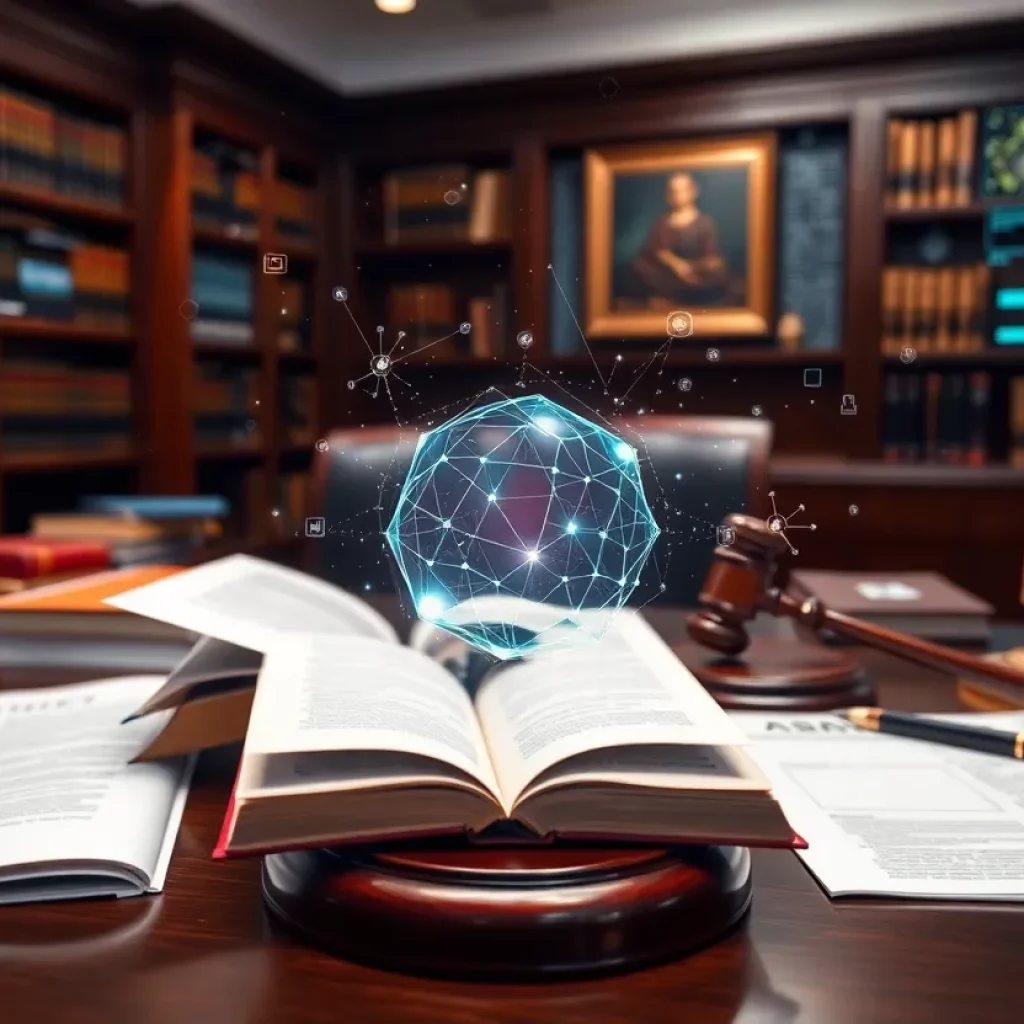News Summary
A controversial use of AI tools in a legal brief for journalist Timothy Burke has raised serious questions about the reliability of AI in legal proceedings. Judge Kathryn Kimball Mizelle highlighted significant errors attributed to AI-generated misinformation, igniting discussions on AI’s role in the legal profession and its impact on press freedom. The case underscores the challenges faced by legal practitioners when integrating AI into their work amid concerns for accuracy and credibility.
A Legal Brief Blunder: AI Tools Used in Escalating Case Against Journalist
In an astonishing turn of events within the legal arena, a recent court filing revealed the controversial use of artificial intelligence tools in drafting a **legal brief** for a journalist indicted over leaked footage from a major broadcast network. The case revolves around Timothy Burke, a media consultant and former journalist, who is facing **serious charges** related to hacking into a broadcaster’s streaming system. The missteps in the legal document have not only raised eyebrows but also ignited discussions around the burgeoning role of AI in the legal profession.
The admission came to light on a Monday when Burke’s legal team, comprised of lawyers Michael Maddux and Mark Rasch, acknowledged the utilization of AI, including ChatGPT, in the preparation of a recently submitted legal brief. This disclosure follows a **painful revelation** by Judge Kathryn Kimball Mizelle, who identified numerous significant errors within the brief—errors stemming from what she termed “non-existent quotes” and **misreferenced propositions** sourced from federal appellate rulings and a Congressional committee report.
Judge’s Findings Raise Questions About AI Reliability
Upon scrutinizing the brief, Judge Mizelle pinpointed nine glaring instances of misinformation while also highlighting six additional errors, categorized as less severe but still problematic. The judge’s observations did not just end there; various miscellaneous issues were also flagged as part of the flawed submission. The fallout from this misadventure raises crucial questions about the **accuracy and reliability** of AI when leveraged in legal research.
According to the attorneys, the primary responsibility for the inaccuracies lay with Rasch, who employed a blend of traditional research tools and AI features. His research involved using Westlaw, with its advanced AI capabilities, alongside Google, Google Scholar, and even the newest **deep research feature** offered by ChatGPT version 4.5. Despite having access to sophisticated AI tools, it became evident that these resources contributed to oversights, with Rasch admitting he did not properly vet the final draft—leading to the inclusion of unedited sections from earlier versions.
The AI Impact: Hallucinations and Misconduct
The rising use of AI technology in the legal sphere has become a double-edged sword, sparking **concerns about accuracy**. Legal experts suggest that the phenomenon of AI “hallucination”—where systems fabricate information—has alarmingly begun to permeate legal arguments. Previously, these errors have mostly plagued solo practitioners and small firm attorneys, but even attorneys in **larger firms** have encountered similar challenges. A recent incident cited a major law firm’s reliance on an AI system that erroneously attributed authorship for an article mentioned in an expert report, despite the underlying content being accurate.
The situation surrounding Burke is not an isolated incident. In fact, attorneys from two different firms were recently ordered to pay substantial fines after submitting documents rife with **fabricated citations**. This alarming trend has pushed legal professionals to increasingly scrutinize the presence and function of AI in their workflows, especially concerning ensuring credibility and accuracy in legal proceedings.
The Implications for Press Freedom
The charges against Timothy Burke are particularly contentious, given the implications for press freedom. Advocates for journalistic integrity have rallied around Burke, countering that he committed no offense, as the URLs utilized for accessing the broadcast clips were publicly available. The leaked footage included incendiary remarks from well-known personalities and behind-the-scenes discussions that were never aired, raising suspicions about the inner workings of the broadcast network. Following a federal investigation, attention inevitably turned towards Burke, leading to his indictment the previous year.
This unfolding legal drama not only shines a glaring spotlight on the floundering intersection of AI and law but also on the fundamental principles of **journalistic integrity**, and its potential violation amidst evolving technologies. The outcome of Burke’s legal challenges and the broader conversations that arise may very well dictate the future framework of how AI is utilized within the legal landscape.
As this pivotal case continues to unfold, the legal community awaits to see both how courts will respond to AI-related submissions and how these events may shape the very fabric of legal practice moving forward.
Deeper Dive: News & Info About This Topic
HERE Resources
Orrick Partners Compete for Top Honors at California Legal Awards 2025
Supreme Court Decision Hits Hard: Venezuelan Migrants Face Uncertain Future
Tragic Tree-Trimming Accident Near Malibu: Lawyer Advocates for Justice
Supreme Court Considers Ellingburg Case: Lawyer’s Perspective
Lawyers Embrace AI for Case Value Evaluation
Texas Lawyer Faces Scrutiny Over AI-Driven Filings
Jeanine Pirro Named Interim U.S. Attorney: A Lawyer’s Journey
Attorney General Pam Bondi Advocates Tough Crime Policies
Hamilton Wingo Welcomes New Lawyers to Boost Expertise
South Carolina Executes Inmate by Firing Squad, Reviving Debate on Capital Punishment
Additional Resources
- Law360: A Legal Brief Blunder
- Wikipedia: Timothy Burke (journalist)
- Reuters: US Judge Demands Explanation from Lawyers over Error-Filled Brief
- American Bar Association: Using AI in Legal Research
- The Verge: AI-Generated Legal Briefs Raising Errors and Concerns in Court
Author: STAFF HERE CHARLESTON
The CHARLESTON STAFF WRITER represents the experienced team at HEREcharleston.com, your go-to source for actionable local news and information in Charleston, Charleston County, and beyond. Specializing in "news you can use," we cover essential topics like product reviews for personal and business needs, local business directories, politics, real estate trends, neighborhood insights, and state news affecting the area—with deep expertise drawn from years of dedicated reporting and strong community input, including local press releases and business updates. We deliver top reporting on high-value events such as the Spoleto Festival USA, Charleston Wine + Food Festival, and the MOJA Festival. Our coverage extends to key organizations like the Charleston Metro Chamber of Commerce and the Charleston Museum, plus leading businesses in tourism and maritime industries that power the local economy such as South Carolina Ports Authority and the Charleston Visitor Center. As part of the broader HERE network, including HEREaiken.com, HEREbeaufort.com, HEREchapin.com, HEREcharleston.com, HEREclinton.com, HEREcolumbia.com, HEREgeorgetown.com, HEREgreenwood.com, HEREgreenville.com, HEREhiltonhead.com, HEREirmo.com, HEREmyrtlebeach.com, HEREnewberry.com, HERErockhill.com, HEREspartanburg.com, HEREaustin.com, HEREcollegestation.com, HEREdallas.com, HEREhouston.com, and HEREsanantonio.com, we provide comprehensive, credible insights into South Carolina's dynamic landscape.










